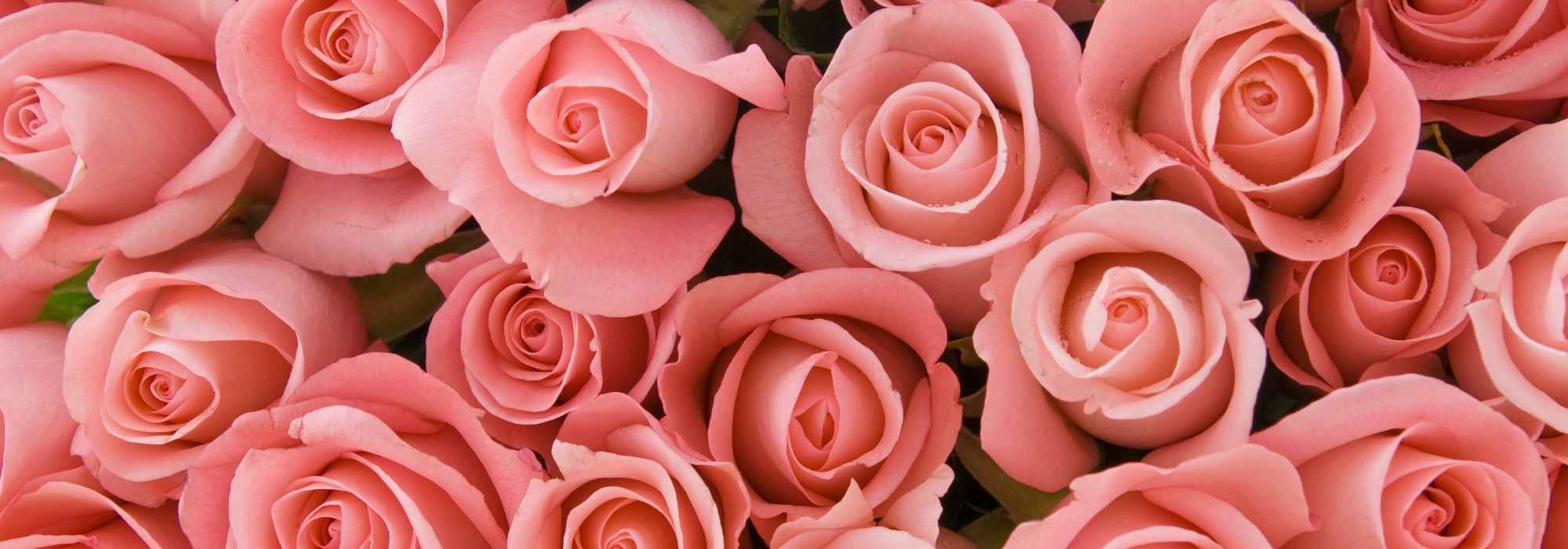
The scent of roses
Selection of fragrant roses
Contents
Cultivated since Antiquity or even for millennia, roses delight us with their beauty but above all with their fragrance. It declinates into a range of subtle, delicate scents, from old garden rose with fruity notes, through musky undertones to tea and myrrh fragrances. Join us for a journey to the land of fragrant roses.
Why are roses scented?
Rose scent is credited with various functions, such as attracting pollinating insects or deterring predators. Rose scent is concentrated in petals, which explains why most fragrant roses are old garden roses, very full of petals. However, stamens also give off scents close to musk and clove. Over the course of hybridization, rose scent has unfortunately been lost in favour of flower aesthetics.
From a scientific standpoint, rose scent is the subject of research. It is due to dozens of volatile molecules, such as geraniol, nerol or eugenol. In 2015, a team of French scientists even succeeded in identifying a gene called RhNUDX1, which is involved in producing scent in roses!
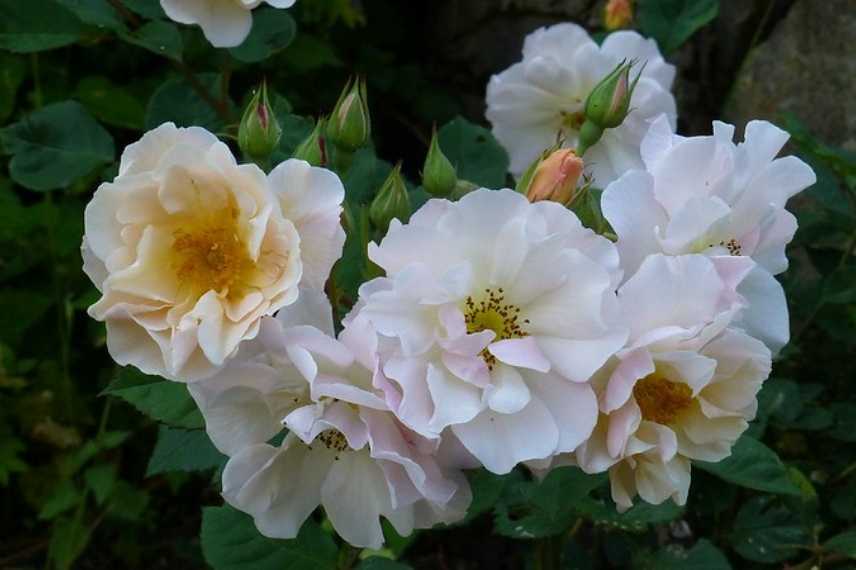
Rose ‘Penelope’ deliciously fragrant – © Cristina Sanvito
Read also
Roses: the most fragrantWhere should you plant a rose to best enjoy its fragrance?
To make the most of the fragrance of scented roses, plant them near a door, in a passageway or at the edge of a path. Also avoid planting roses next to other scented flowers, to prevent scents mixing and to be able to enjoy their perfume fully.
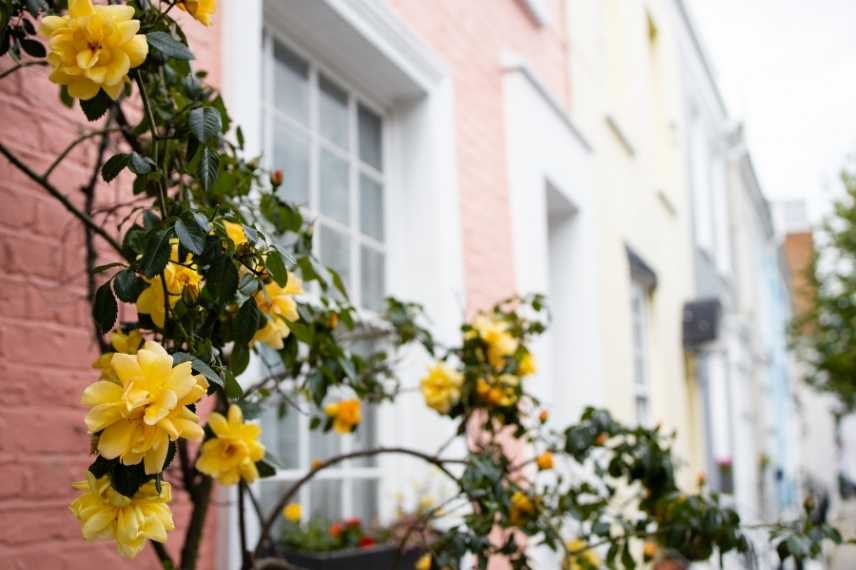
Place your most fragrant rose bushes near house entrance, for example
Discover other Roses
View all →Available in 2 sizes
Available in 2 sizes
Available in 2 sizes
Available in 0 sizes
Available in 3 sizes
Available in 2 sizes
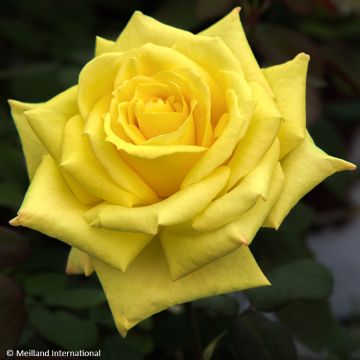
Available in 2 sizes
Available in 2 sizes
Available in 3 sizes
Available in 2 sizes
How to smell a rose?
Smelling a rose is more delicate than it seems. It’s best not to inhale deeply, as doing so can overwhelm your nose and leave you unable to smell anything. Smell a rose gently, as you would when sampling a perfume in perfumery: breathe normally and occasionally pause briefly.
A rose’s scent evolves over the course of the day. While morning is the best time to catch its fragrances, try smelling it at different times of day to perceive the changing palette of aroma notes produced as the hours pass.
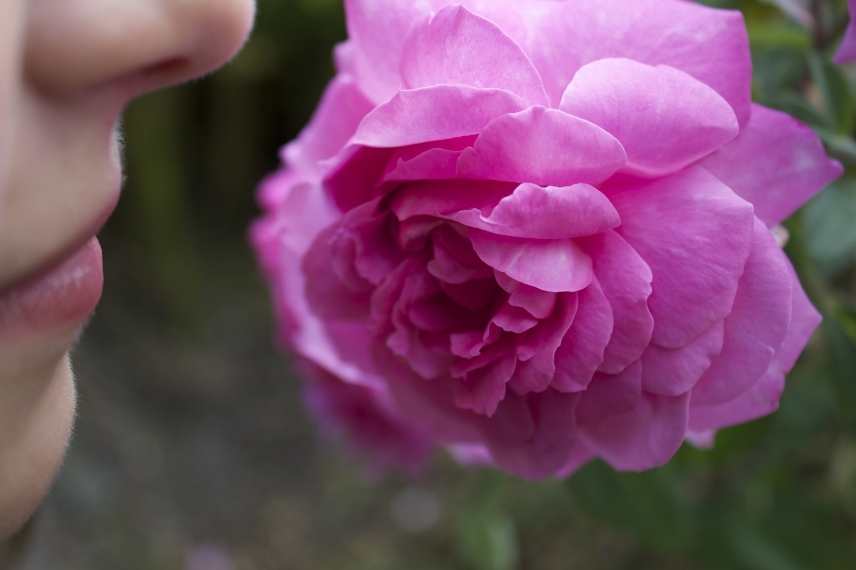
Read also
10 climbing roses for pergolaDifferent fragrances of roses
Old roses
Old roses are among most fragrant. Species and varieties are very numerous. The Damask Rose or Rosa x damascena, native to Middle East, has been cultivated for millennia for its fragrance and is at origin of roses grown today for their essential oils.
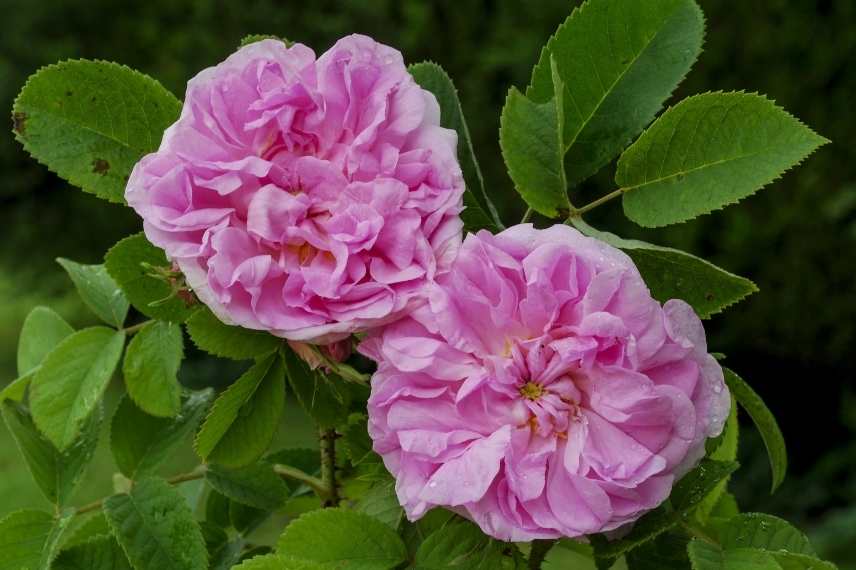
Damask Rose
There is also the classic Rosa Centifolia, grown in Grasse, France, and highly prized by perfumers. Also called cabbage rose, it bears numerous petals and displays a pale pink with delicate hues.
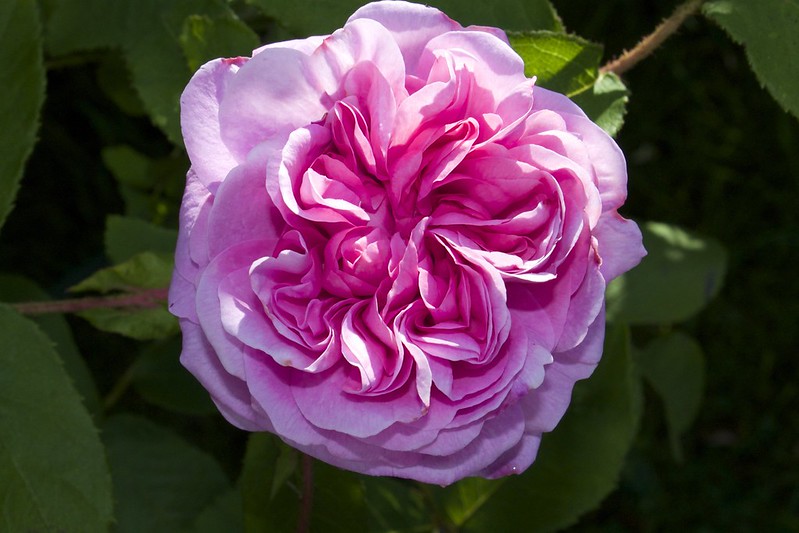
Rosa centifolia muscosa ‘Moosrose’ -© Patrick Nouhailler
Another little marvel, old rose ‘Cuisse de Nymphe’ exudes a powdery fragrance. It takes form of a vigorous little bush adorned with flowers whose petals are very pale pink, almost white.
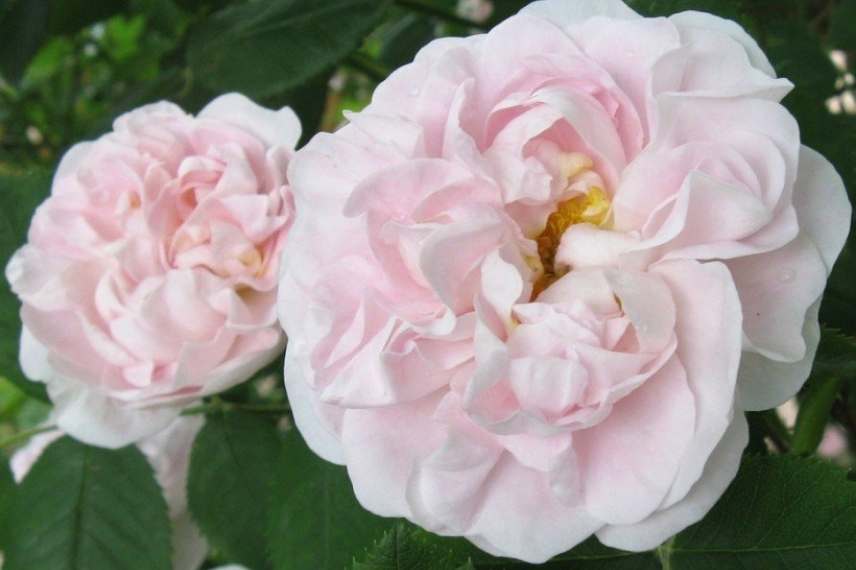
Rose ‘Cuisse de Nymphe’
Old-rose scent can also be found in modern hybrid teas. This is the case, for example, with Rose ‘Fragonard’, with its double flowers of vivid pink giving off a powerful old-rose perfume with fruity notes, and also with Roses ‘Bolshoi’, ‘Charles de Gaulle’, ‘Papa Meilland’ and ‘Yves Piaget’, regarded as safe choices with lemony notes.
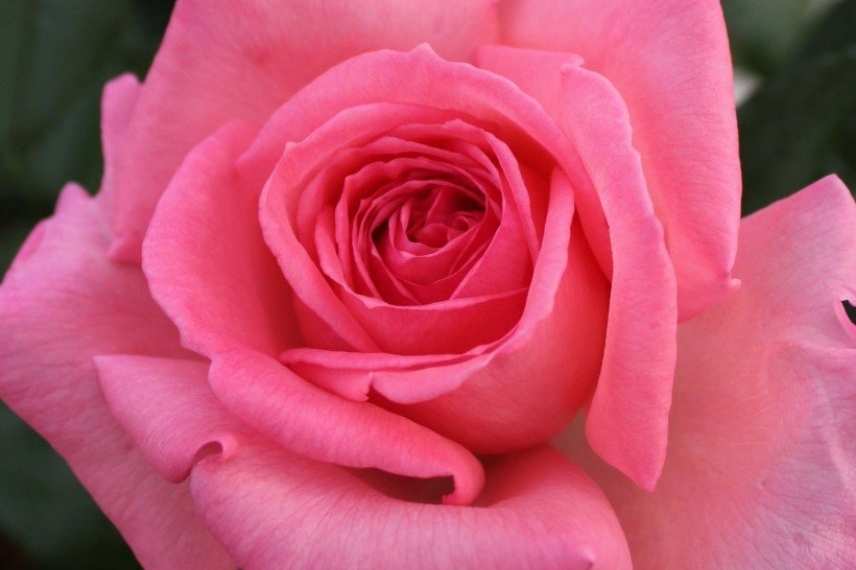
Rose ‘Fragonard’
Musk-scented
Some roses give off musky scents, such as species Rosa moschata. Also worth mentioning is charming Rose ‘Kew Rambler’, a vigorous liana rose that can produce branches up to 7 m and in June is covered with a multitude of flowers resembling delicate pink-and-white dog-roses with yellow stamens at their heart. It is wonderful trained over a large arch and can form a pleasant, scented and romantic passageway.
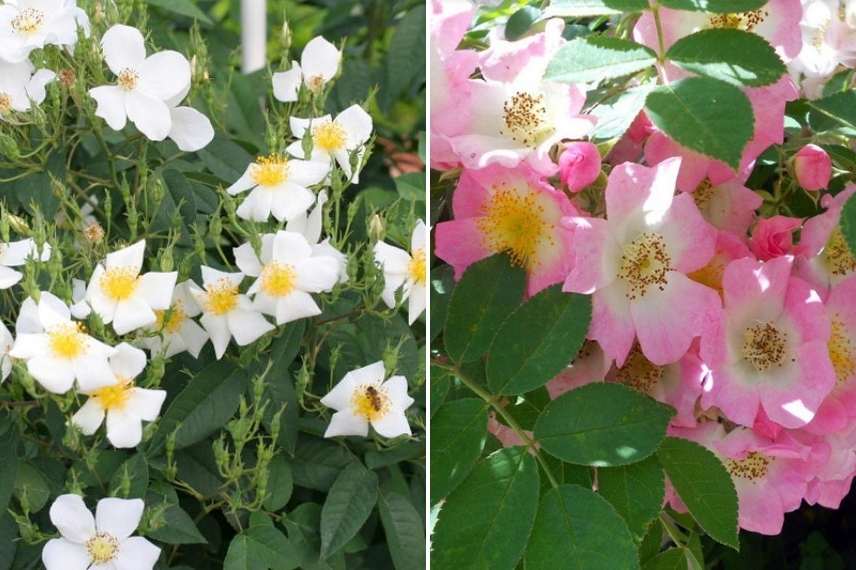
Rosa moschata (© Malcolm Manners) and rose ‘Kew Rambler’
Fruity
Roses can also exhale lemony or citrus, apricot, melon, lychee, strawberry, raspberry or mango scents. Thus, large-flowered rose ‘La Rose de Molinard’ gives off old-rose aromas mingled with fruit notes such as pear, apple, citrus and exotic fruits.
Another fruit-scented rose, Rose ‘Brocéliande’, an award-winning modern hybrid, charms with petals streaked white and pink and with its large double flowers.
Another safe bet, Rose ‘Line Renaud’ has much to offer. With large double flowers coloured a delightful Indian pink and a powerful perfume with notes of citrus and cypress, it is perfect for creating a romantic atmosphere in your garden.
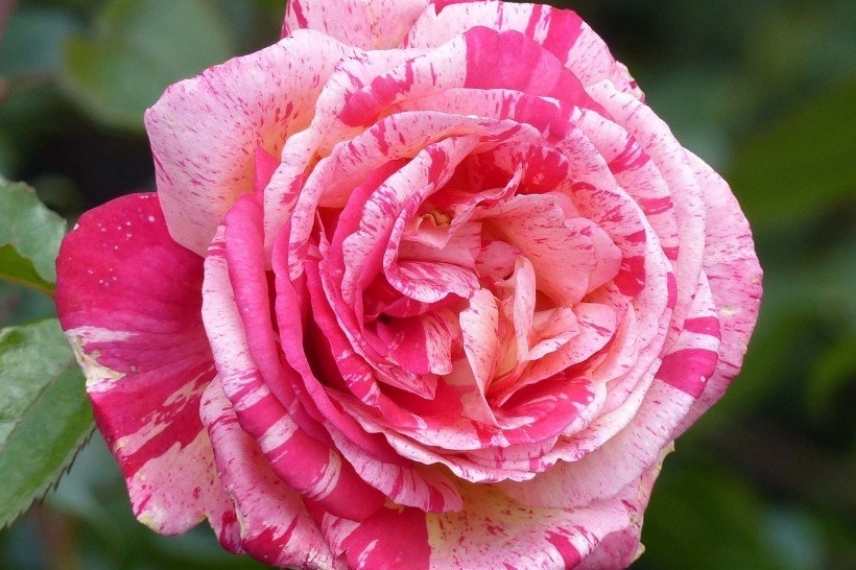
Rose ‘Broceliande’
Tea scent
Tea-like scent is found in Rosa gigantea. Native to China, Rosa gigantea is one of species, along with Rosa chinensis, that gave rise to modern Hybrid Tea roses. Tea scent is also often noticeable in flowers of yellow or white hues, which are distant descendants of Rosa x odorata Ochroleuca.
Myrrh
Occasionally rose perfumes include myrrh-like fragrances, as with Rosa arvensis, and others, such as English rose ‘Spirit of Freedom’. Flowers of this old rose exude much charm with their pale pink colouring and round shape with many tightly packed petals. Depending on use, it can form a bush 1.25 m high and wide, or a climbing bush reaching 2.5 m. Its wide 9 cm flowers give off a heady fragrance and flower in June–July and again in September–October.
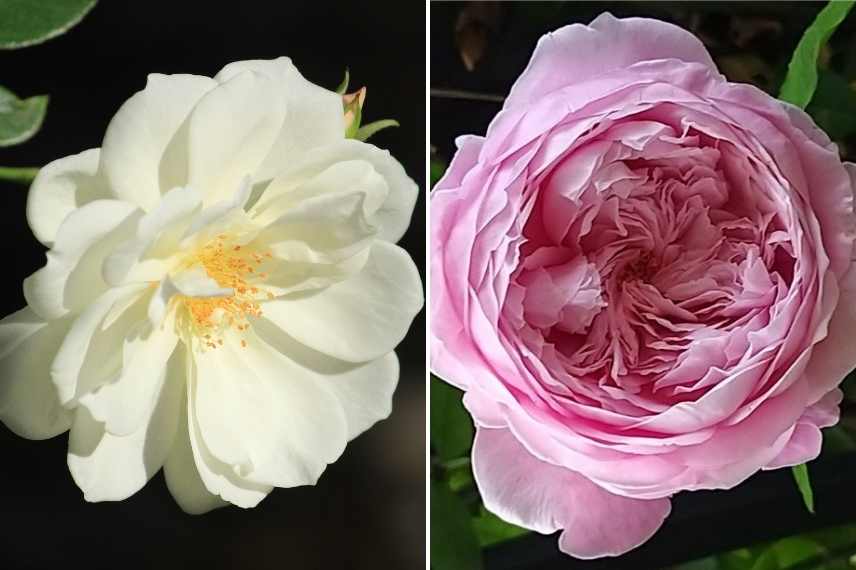
Rosa arvensis and ‘Spirit of Freedom’®
Perfumers' favourite roses
Rose fragrance is one of the most used in perfumery. Perfumers recover scented molecules by distillation or extraction to obtain essential oils, concrete or absolute, the latter two products being highly concentrated in fragrance. Roses most used by perfumers are old garden roses: Damask rose and Centifolia rose.
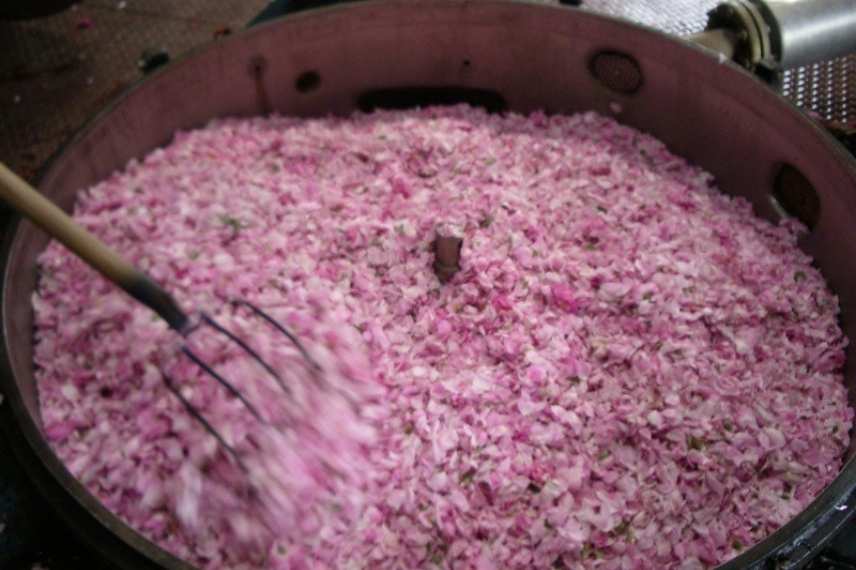
Preparation of rose absolute – © Ivan Matthieu
Damask rose
The Damask roses (Rosa x damascena) are very ancient and have been cultivated for their fragrance for millennia. According to popular lore, Crusaders brought them back from Damascus to Europe in Middle Ages. They take the form of a 1 m shrub and their powerful scent is much appreciated by perfumers. Perfumers make extensive use of the old Rosa damascena Trigintipetala, also called Rosa ‘Kazanlik’, grown in Bulgaria and Turkey.
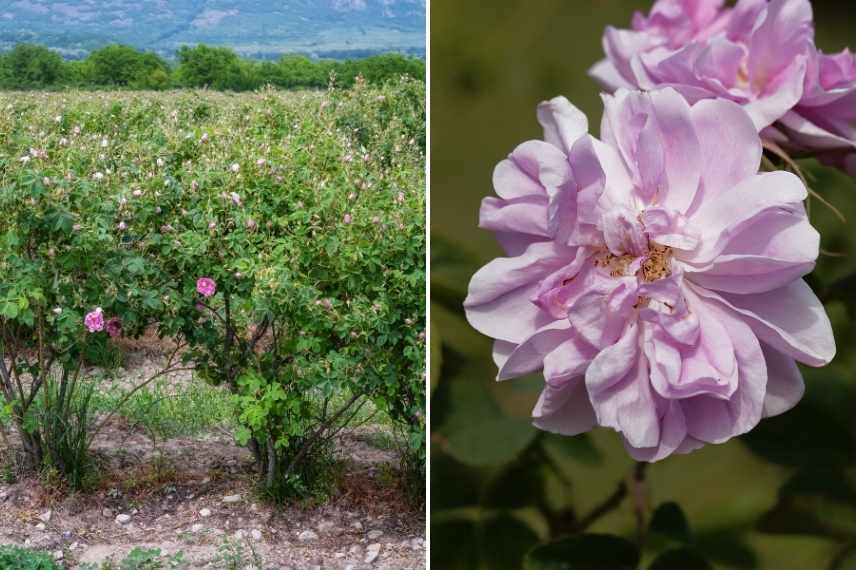
Cultivation of Rosa x damascena, and flower on right
Centifolia moss rose
Grown in Grasse and Morocco, it is also called Centifolia rose or cabbage rose, because of its many tightly packed petals. It is also known as May rose, as it is harvested at that time before being rapidly processed for perfumery. Its pale pink hue gives it a very fresh appearance. Its heady and sweet scent is highly prized by top perfumers.
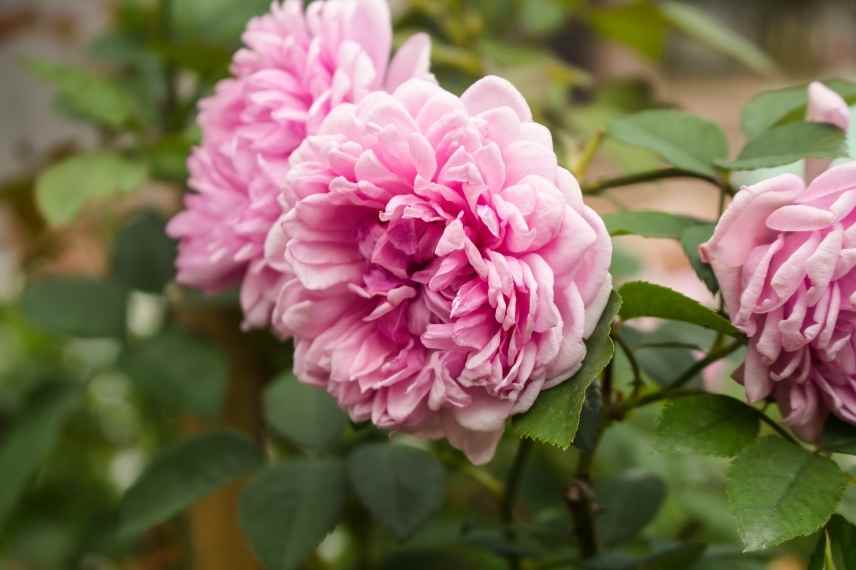
Rosa centifola Muscosa
Discover our collection of fragrant roses.
- Subscribe!
- Contents
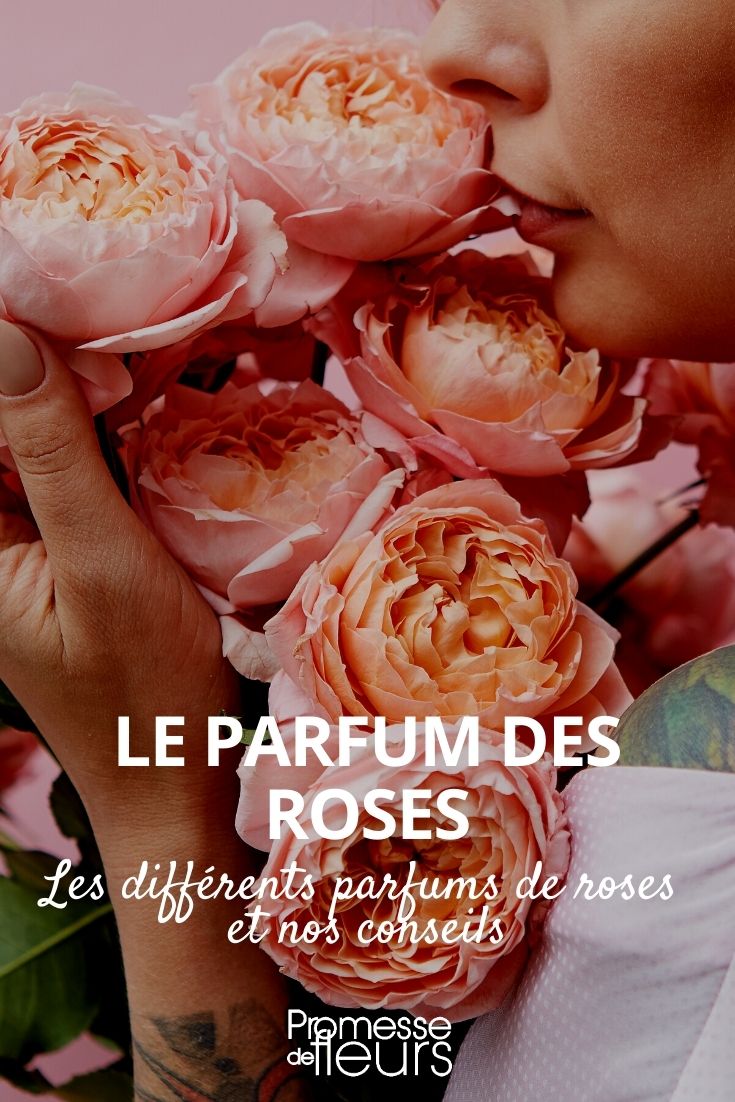































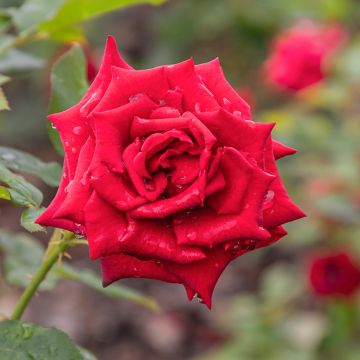
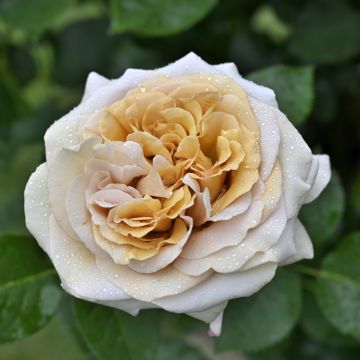
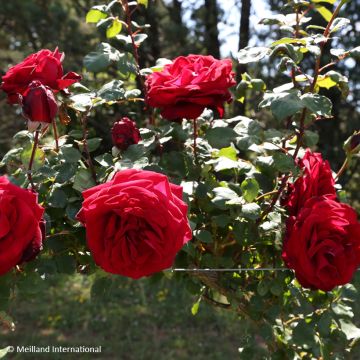
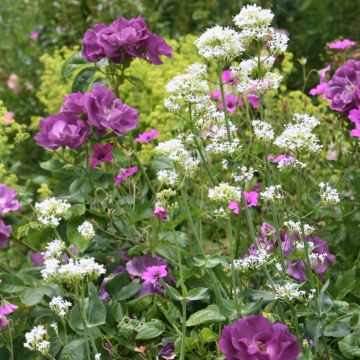
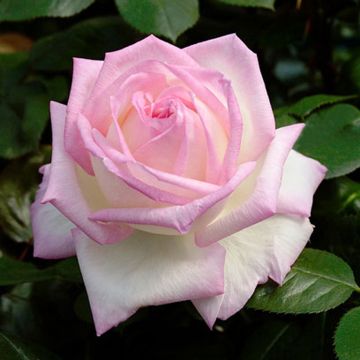
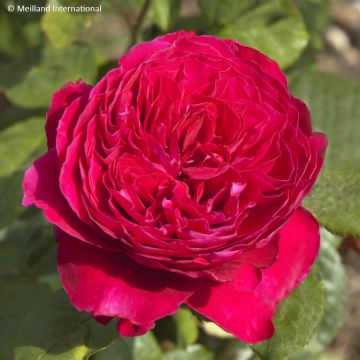
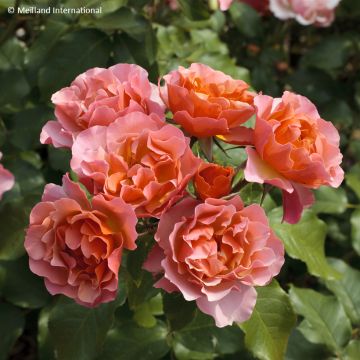
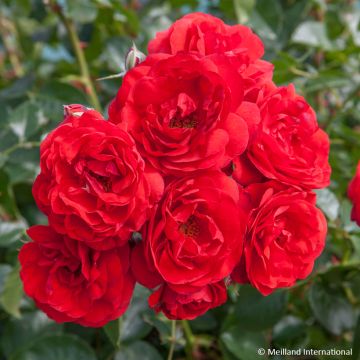
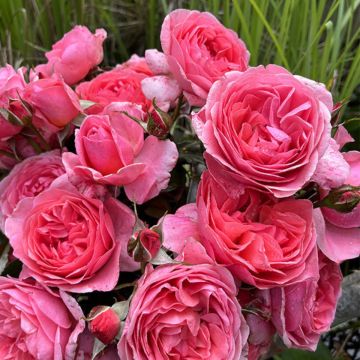
Comments